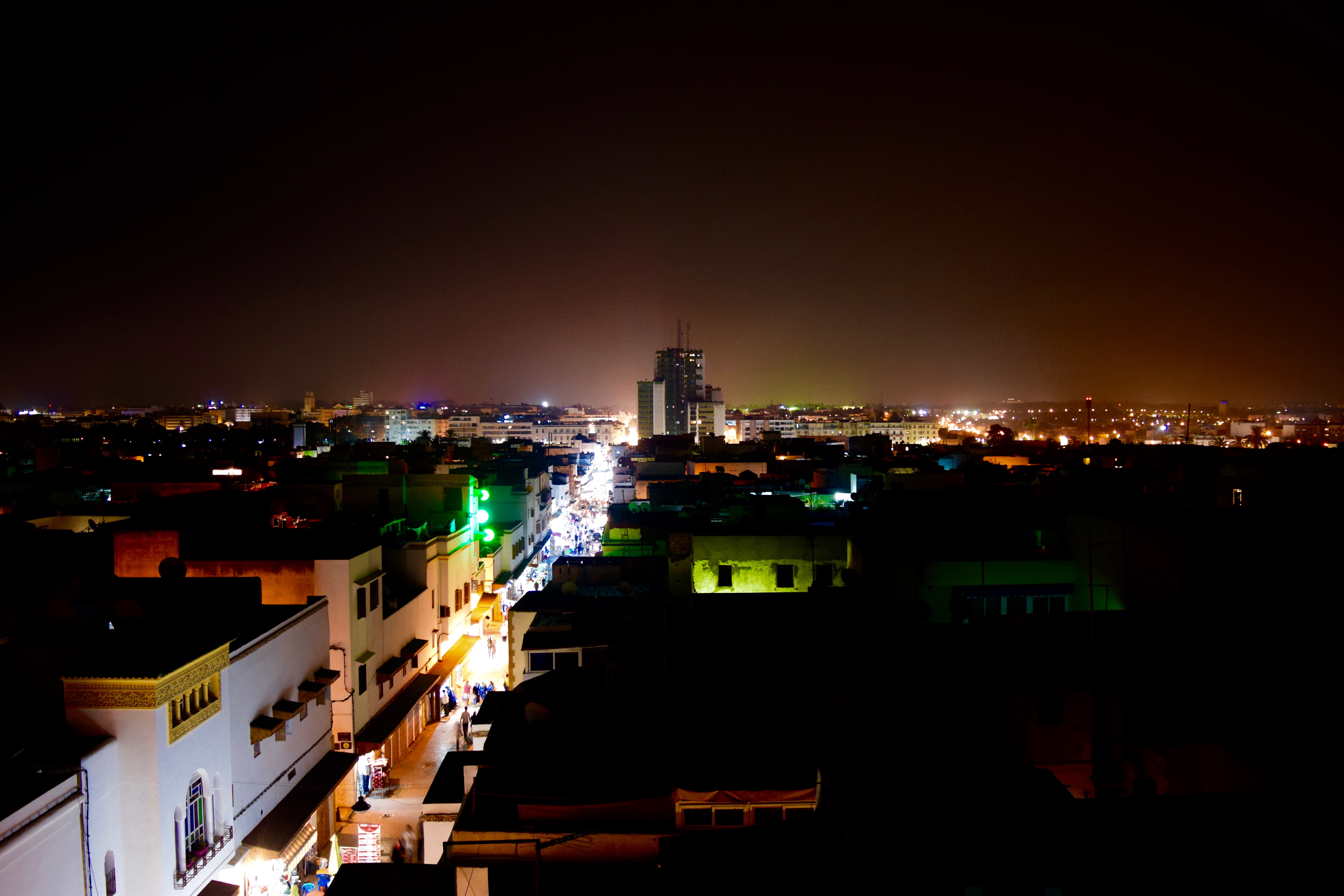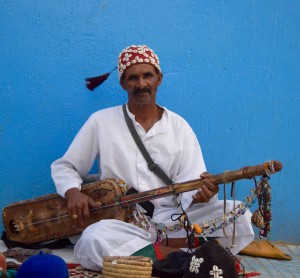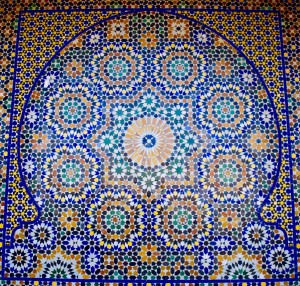Rabat – I am beginning to find a rhythm in my new home. 3 hours of Arabic in the morning is followed by lunch, afternoon class, soccer on the beach, and then the 10pm meal. My host family has welcomed me into their home with open arms, feeding me home cooked Couscous and Tajine. As I type, my 1 1/2 year old host sister is gently slapping my face and mumbling inaudibly.
I spent the weekend wandering the city, soaking up the energy of the Medina and faking a French accent. The biggest tourist draw in the Medina is the Souk: a sprawling street market teeming with people, local and foreign. With enough determination a shopper could find just about anything in the Souk. Soccer jerseys for 100DH (about $10), fake Gucci underwear for 20DH, though the shopkeeper will ask you for 30.
Walking through the Souk is a sensory overload. Sharp red rugs and deep blue and yellow pottery jump out of the stalls and attract stray passersby. The smell of spiced meats on the grill makes your mouth water, until you see the cow skull that the meat was plucked from. One lucky SIT participant witnessed an 8-foot long shark being butchered on the street, blood coursing down the cobblestone.
Perhaps the most exciting attraction in the Souk is the people that crowd the streets. Conversation in French and Darija (Moroccan Arabic) becomes a constant buzz surrounding you as vendors promote their wares and shoppers haggle for the best deal.
What catches my eye in particular are the beggars on every street corner. Missing eyes, sporting deformed limbs, bleeding and oozing from every possible orifice, Rabat has abject poverty that isn’t visible in the United States. I will never be able to forget the face of a young boy, no older than 10, cradling his deformed sister and begging for spare change.
We have been advised to not give money to the beggars. It was explained to me in near perfect English by a young man I met playing soccer on the beach.
“These people, it’s their job. Like, you are a student, that’s what you do. For them, it’s a job. So to do a good job, they have to make themselves look as poor, and as needy as possible. When you give them your money, you are paying them a wage, like their boss. It’s not good to do.”
The point hit home. Though I was in disbelief when I first saw the beggars, I also wasn’t surprised. I had been told that they would be a part of my experience. This expectation almost creates a demand for poverty, and the people of the Medina are happy to supply. The young man went on to say that many of the blind beggars are not actually blind, and many of the women on the corner are unrelated to the supposedly sick children that they shed tears over for my entertainment.
In the same way that the Moroccan taxi drivers satisfy tourists need for transportation, the beggars in the Medina satisfy the tourist need for validation of their expectations.
With that said, I paid the boy on the street cradling his sister. He might have been tricking me, he might have taken my change and bought an ice cream and then go to school the next day. That’s ok if that’s the case. If nothing else, he did a good job acting.


